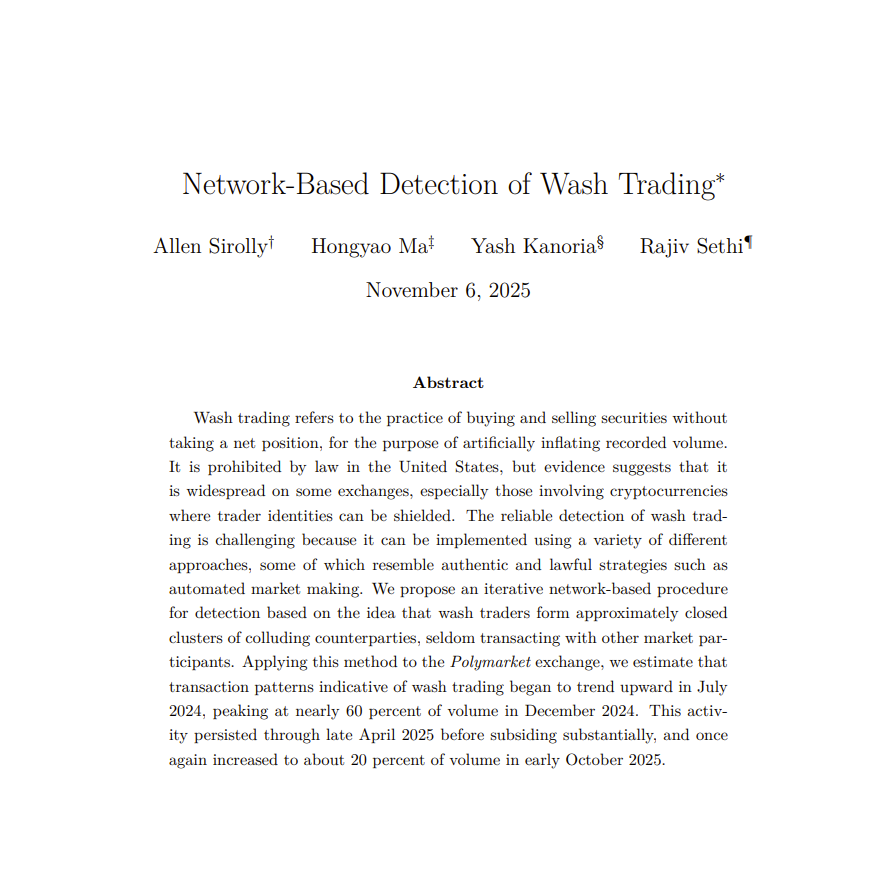
Columbia Researchers Uncover Artificial Trading Patterns in Polymarket
A study from Columbia University reveals that a significant portion of Polymarket's trading activity may be influenced by non-genuine transactions, raising concerns in the prediction market sector.
A recent investigation by Columbia University highlights troubling insights regarding the prediction market platform Polymarket. Researchers assert that as much as 60% of Polymarket’s trade volume may arise from wash trading, ultimately signaling alarm over artificial behaviors within prediction markets.
In an unpublished research paper titled Network-Based Detection of Wash-Trading, dated July 2024, the analysis disclosed that wash trades represented nearly 60% of the platform’s trading activity during that month alone.
“This activity persisted through late April 2025 before subsiding substantially, and once again increased to about 20 percent of volume in early October 2025,” they noted.
(Translation: This activity continued until late April 2025 before significantly decreasing, then rose back to 20% of the volume again in early October 2025.)
The study confirmed that 25% of Polymarket’s volume over the three years was linked to artificial trading.
Columbia University Professor Yash Kanoria, a co-author of the research, expressed hope that Polymarket would embrace the findings of their study. The researchers attribute a majority of the artificial trading to Polymarket’s operational structure.
As of now, Cointelegraph has yet to receive a comment from Polymarket regarding these allegations.
 An abstract of the study on wash trading
Source: SSRN
An abstract of the study on wash trading
Source: SSRN
Wash trading, defined as the simultaneous buying and selling of the same asset by a trader to fabricate a misleading perspective on market activity, is illegal in the U.S as it manipulates prices and deceives investors regarding true market demand and liquidity.
The cryptocurrency sector has faced numerous wash trading allegations. In 2023, Solidus Labs reported significant levels of wash trading among decentralized exchanges. According to their findings, approximately 70% of reviewed Ethereum-based decentralized exchange liquidity pools partook in wash trading across a three-year span.
Wash Trading Allegations Cast Doubt on Prediction Market Growth
The recent allegations about wash trading cast a shadow on Polymarket’s swift rise and the broader industry of blockchain-based prediction markets. These markets gained traction during the 2024 U.S. presidential election cycle by accurately predicting outcomes.
Polymarket’s popularity has placed it in the spotlight for a reported $10 billion valuation amidst speculations of significant funding rounds.
As previously reported by Cointelegraph, Polymarket is gearing up for its return to the U.S. market this coming November, several months after the Commodity Futures Trading Commission (CFTC) issued a no-action letter to a clearinghouse acquired by the company.



